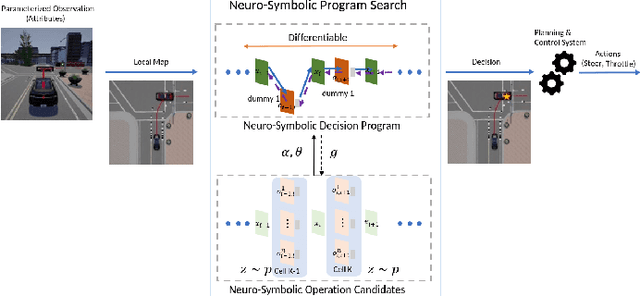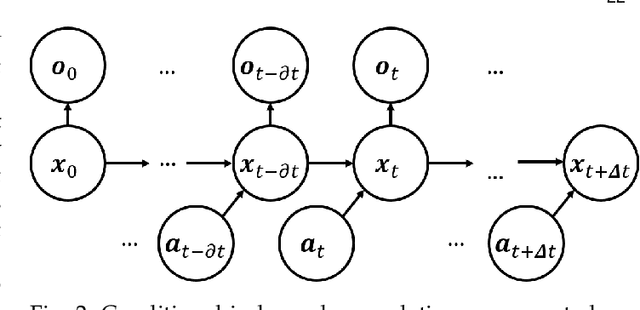Moritz Nekolla
Informed Reinforcement Learning for Situation-Aware Traffic Rule Exceptions
Feb 06, 2024Abstract:Reinforcement Learning is a highly active research field with promising advancements. In the field of autonomous driving, however, often very simple scenarios are being examined. Common approaches use non-interpretable control commands as the action space and unstructured reward designs which lack structure. In this work, we introduce Informed Reinforcement Learning, where a structured rulebook is integrated as a knowledge source. We learn trajectories and asses them with a situation-aware reward design, leading to a dynamic reward which allows the agent to learn situations which require controlled traffic rule exceptions. Our method is applicable to arbitrary RL models. We successfully demonstrate high completion rates of complex scenarios with recent model-based agents.
Knowledge Augmented Machine Learning with Applications in Autonomous Driving: A Survey
May 10, 2022



Abstract:The existence of representative datasets is a prerequisite of many successful artificial intelligence and machine learning models. However, the subsequent application of these models often involves scenarios that are inadequately represented in the data used for training. The reasons for this are manifold and range from time and cost constraints to ethical considerations. As a consequence, the reliable use of these models, especially in safety-critical applications, is a huge challenge. Leveraging additional, already existing sources of knowledge is key to overcome the limitations of purely data-driven approaches, and eventually to increase the generalization capability of these models. Furthermore, predictions that conform with knowledge are crucial for making trustworthy and safe decisions even in underrepresented scenarios. This work provides an overview of existing techniques and methods in the literature that combine data-based models with existing knowledge. The identified approaches are structured according to the categories integration, extraction and conformity. Special attention is given to applications in the field of autonomous driving.
 Add to Chrome
Add to Chrome Add to Firefox
Add to Firefox Add to Edge
Add to Edge